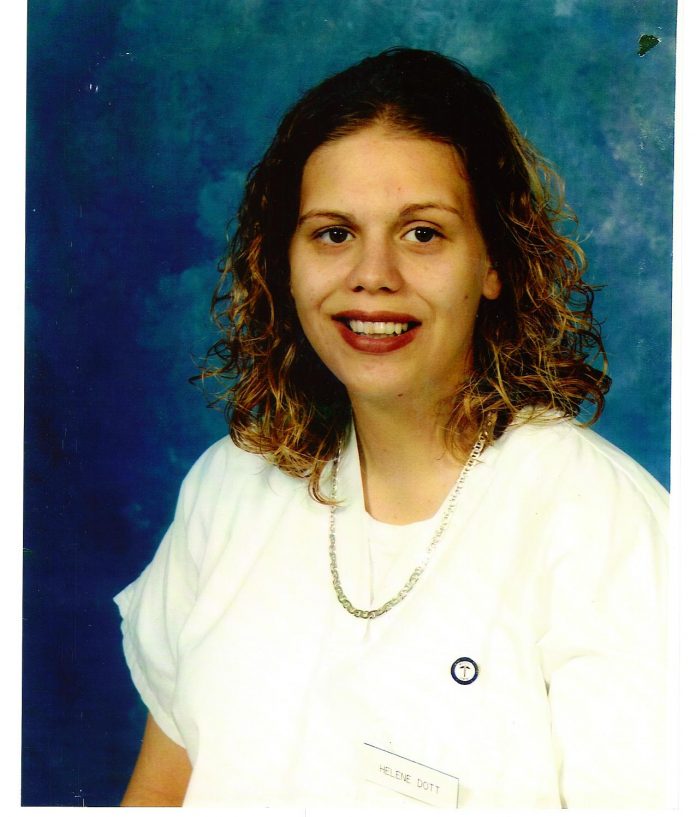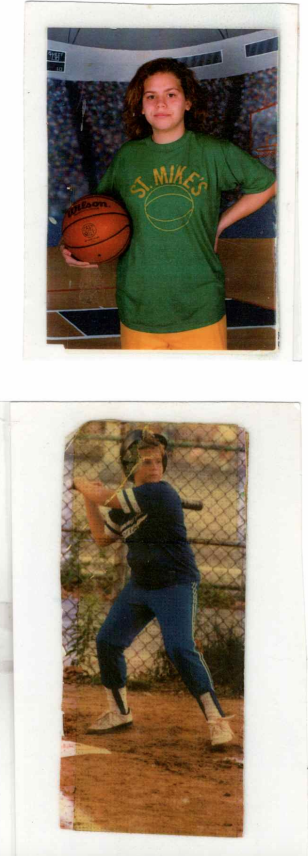It’s been more than two decades since 21-year-old Helene Dott was discovered dead miles from where she was last seen, and her father is still looking for answers.
Helene was last seen the night of Dec. 27, 1999, leaving her Oxford Circle home where she lived with her mother. After getting dressed for bed, Helene told her mother she was just running out momentarily, hurriedly leaving the house without her keys or even cigarettes.
“She never went anywhere without cigarettes,” said Robert Dott, her father.
That was the last time someone from her family saw her alive. Helene’s body was discovered two days later along the old Baltimore and Ohio railroad tracks in Collingdale, Delaware County, just outside of the city limits. She had never been to Collingdale and wouldn’t know anyone down there, Robert said.
“She wouldn’t even know where Collingdale was,” he said.
The autopsy found enough heroin in her system to “kill 50 people,” Dott said. Her death was first ruled as a suicide, but later changed to homicide.
Helene was the mother of two sons, aged 5 and 1 at the time. For the next five years, Robert worked with authorities to learn more about the circumstances surrounding his daughter’s death, and then took the investigation into his own hands when the trail ran dry. In 2004, though, he stopped pursuing the case.
“I had two grandsons. I didn’t want to go pursuing it day after day after day when they were growing up. I didn’t want them to see it in the papers,” he said.
His grandchildren have since graduated from Holy Ghost Preparatory school and went to college. This year, he talked to them about restarting his investigation, hoping that improved technology could lead to some previously unseen answers. They gave their blessing.
Dott has begun his investigation by reaching out to local media and attempting to contact the investigation department that may have evidence for the case.
“Years went by and I never even had a picture of my daughter hanging up until a year and a half ago,” Dott said. “To be honest with you, I think I just buried it.”
Late December 1999
Helene was not a perfect person, her father said, having struggled with addiction and associating with the wrong crowd. But she wasn’t a kid to run off into the night, either. She worked two jobs selling sneakers and helping disabled people at an apartment house near Welsh and the Boulevard. She had a boyfriend who was father of her younger son, who Robert said was a good person.
The night she disappeared she changed from her pajama bottoms to jeans but left the house wearing her pajama top. Robert was divorced from his wife and lived two blocks away from them, but she called him when Helene didn’t return that night. He called the police but was told he had to wait 48 hours before reporting a missing person. He visited hospitals and friends of Helene in search of her.
At 6 p.m. on Dec. 29, his wife called with the news that their daughter’s body had been found and it appeared she had died of drug overdose. The medical examiner found a puncture wound from a hypodermic needle in Helene’s right arm. Detectives discovered two types of semen inside of her.
When Robert saw her body, he noticed the side of her face was black and blue with bruises and had scrape marks, which the report failed to mention. Her clothing had also been torn like she had been dragged or thrown, with fresh abrasions beneath where the clothes torn.
“My daughter wasn’t shooting needles. I would have known,” said Robert, who lived with her as she struggled with addiction and worked as a U.S. Army medic and civilian nurse.
In 2002, the cause of death was changed from suicide to murder.
Helene had been arrested on Dec. 6 that year for attempting to purchase a $2,000 computer from a Best Buy in Delaware County with a fake credit card. Dott said a female friend introduced Helene to two men who gave her the card and instructed her to buy the laptop. The seven felony charges against her were dropped.
After that incident, Dott said that two men who looked to be in their 40s went to Helene’s mother’s house, inquiring about her whereabouts. Her mother didn’t give them any information. They came a second time later that night asking if Helene had been let out of jail. Again, her mother didn’t answer.
To this day Dott can’t be certain robbery, visits and her death are all connected.
“It’s eaten me up for 20 years,” he said.
Searching for answers
Dott appeared in many local news outlets, including two articles in the Northeast Times in 2003 seeking answers. Earlier this year, the Citizens Crime Commission offered $1,000 to anyone with information leading to the arrest of the person responsible.
Dott, who now lives in Lawndale, said he has placed several calls to the Delaware County Criminal Investigation Department to see if they can trace DNA from the semen, but he was told it was a cold case and rejected.
“They told me it’s a cold case so they can’t release anything,” Dott said. He said he would get the evidence tested himself if they would release it to him.
Citizens Crime Commission is offering a $1,000 reward for any information leading to the arrest of the person responsible. Call (215) 546-TIPS. Calls can be anonymous.






